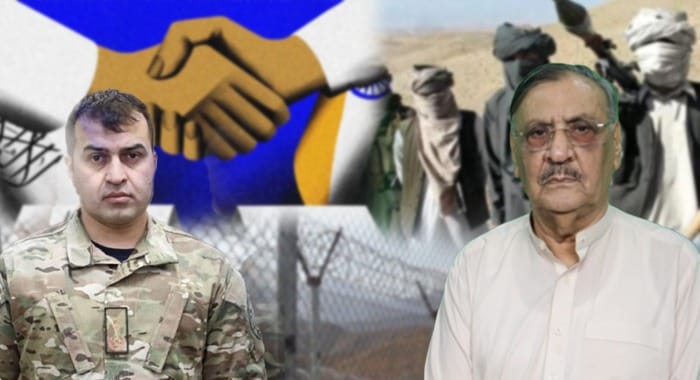Brig (R) Mehmood Shah
Khyber Pakhtunkhwa is under siege politically, administratively, and militarily. Despite receiving Rs700 billion from the federal government to combat terrorism, the province remains trapped in a cycle of bloodshed. Policemen are targeted with impunity, districts like Dera Ismail Khan are paralysed by fear, and the leadership seems incapable or unwilling to fight back. As someone who has served on the frontlines and advised on security at the highest level, I say this without hesitation: this crisis is not just a failure of governance, but of political morality and national will.
Let’s start with what is known but rarely confronted. India, through the Taliban regime in Kabul, is directly funding the Tehrik-e-Taliban Pakistan (TTP) a fact recently confirmed by former Afghan intelligence chief General Rahmatullah Nabil. The Indian state continues to wage hybrid warfare through its proxies, while our western neighbour, the so-called Islamic Emirate, shamelessly launders Indian funds into Pakistani blood. The hypocrisy is staggering: the same Taliban who speak of jihad now fund terror attacks against Muslims in Pakistan.
To claim ignorance of these facts would be deceit. Our security establishment has known this for years. Yet, where is the diplomatic pressure? Where is the national outrage? Where is the urgency in Islamabad or Peshawar? Unfortunately, what we see instead is criminal silence and disturbing complicity.
Once, our tribal belt stood as a line of defence honour-bound, brave, and historically vital in national resistance movements. Today, those same tribal areas are being used as corridors for Indian-sponsored militancy. The tragedy is not just that militants are taking money from Hind (India), but that they are doing so under the illusion of defending Islam. To fight your own country, your own people, while claiming Islamic justification is not jihad it is betrayal.
On the ground, we are still recovering from 70 years of negligence along the western border. While the eastern border has always been under tight surveillance, the western front remained dangerously porous. Only recently have serious measures been taken border fencing, troop deployments, and improved surveillance—but these are reactive, not strategic. The enemy has had decades to entrench itself.
Let me offer a real example: a friend once told me of a planned attack against militants. When I contacted the Army, they responded that a TTP “formation” had already been detected crossing from Afghanistan. Such was the precision and preparedness of previous governments. Today, that coordination and preemptive capability appear shattered.
And what of the Rs700 billion earmarked for KP’s counterterrorism? Where is it? Has the police force received modern vehicles, better weapons, intelligence tools, or protective gear? Have new units been trained? The answer is no. Our brave police officers, who fight daily on the frontlines, remain poorly equipped and grossly underfunded. They are the martyrs of a government that praises terrorists and punishes truth-tellers.
Yes, punishes. When I spoke publicly about these failures, the provincial government had the audacity to file a legal case against me. Fortunately, the judiciary saw through the charade and threw the case out. But what kind of government responds to criticism by targeting retired officers instead of terrorists?
It is also no secret that the ruling party in KP has sheltered and glorified extremists. Convicted individuals are welcomed from prison with food at ministers’ homes. Those who spread chaos are rewarded; those who defend the state are isolated. Is this governance or sabotage?
Yet even in this darkness, there is a glimmer of hope. The KP Police’s adoption of anti-drone technology, particularly in Peshawar, is a step forward. These tools, combined with real-time intelligence, can deter and neutralise threats. But technology without political will is useless.
When China offered to send troops to protect its personnel targeted by TTP, Pakistan rightly declined, asserting that we have sufficient forces. But having forces is not enough—they must be empowered, resourced, and politically backed. Otherwise, they are sent to die in vain.
The leadership in KP must also explain their absence from critical zones like Dera Ismail Khan ironically the hometown of both the Chief Minister and the Governor. If they cannot visit their own constituencies, how can they claim to govern the province? We must stop confusing fear with leadership and silence with strategy.
And the people, too, must wake up. It is time to ask tough questions before casting votes: Who really stands for peace? Who invests in security? Who plays politics with our lives? Blind loyalty has brought us to this point—now is the time for conscious choice.
We must also acknowledge recent positive signs from within Afghanistan. The Kandahar-based spiritual leadership of the Taliban has issued a fatwa declaring that jihad cannot be waged outside Afghan borders. This theological shift, if upheld, can weaken TTP’s ideological narrative. Meanwhile, international exposure of India’s role in terror financing is increasing.
Let us hope these developments translate into action. But hope is not a strategy. We must demand accountability for Rs700 billion. We must depoliticise terrorism. We must empower our security forces. And we must reject every leader who stands with militants instead of martyrs. Only then can Khyber Pakhtunkhwa begin to heal.





